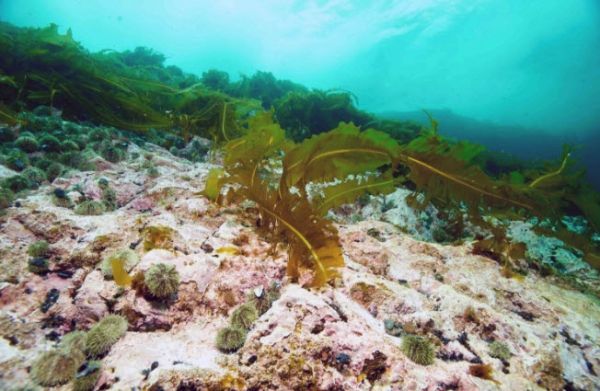Bigelow Laboratory for Ocean Sciences has been awarded funding from Maine Sea Grant for a new study of kelp forests in the Gulf of Maine. Senior Research Scientist Douglas Rasher will lead the project with support from University of Maine scientist Robert Steneck, continuing a long-standing partnership between Bigelow Laboratory and the University of Maine’s Darling Marine Center. The researchers will collaborate with government and industry partners to assess the current state of kelp forests in the region and learn how Maine can maintain a sustainable kelp industry.
Kelp forests are declining across much the planet, a result of global climate change and local human activities. In the northern Gulf of Maine, however, the researchers believe kelp forests may actually be returning—though the Gulf’s warming and acidifying waters mean that some of the kelp species are likely different than those that historically thrived in the region.
Rasher and Steneck believe that one major reason for the return of kelp forests is a lack of animals that eat kelp, namely sea urchins. In the later part of the 20th century, humans triggered a “boom and bust” urchin fishery, which reduced them to very low population densities within a decade.
Read more at Bigelow Laboratory for Ocean Sciences
Image Credit: Bigelow Laboratory for Ocean Sciences


